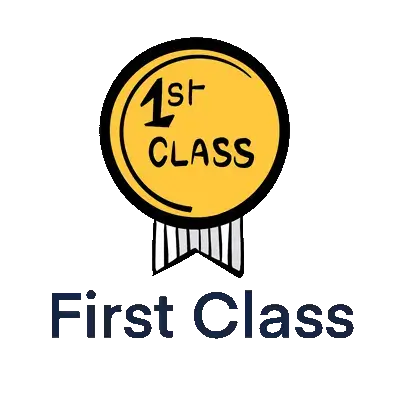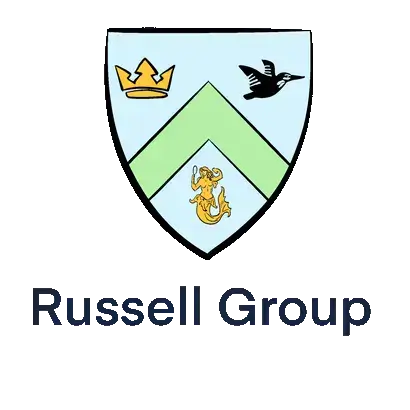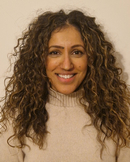Marlborough College tutors
Nicola - Check availability
11 Plus, 13 Plus, Other School Entrance, University Admissions & English
Nicola is a qualified and experienced practising English teacher, with extensive experience teaching English at Key Stages 3, 4 and 5 in leading...
English (2006)
School entrance experience







Marlborough College entrance guide
Marlborough College has, in its 179 years, established itself as a popular co-educational boarding school. Like many other traditional independent schools it is situated amongst charming grounds and has its fair share of well known alumni, or Old Malburians.
That’s not to say it is not innovative. It was the first boarding school to admit girls (to its Sixth Form) in the 1960s and then fully in the late eighties, it has promoted the importance of balancing the academic with dramatic, musical and sporting achievements.
Below, you will find a guide outlining admissions to the school as well as our tutors who have supported students to Marlborough College.
ISEB / Common Entrance Assessments at Marlborough College
Like most independent schools with a Year 9 entry point, there are two separate periods of admissions assessments. The ISEB and Common Entrance stages:
ISEB Assessment (11 Plus)
In Year 6, applicants will be required to sit the standardised ISEB assessment. This computerised assessment covering English, Maths and Reasoning tests is the first 'cut off' point. Students who are unsuccessful in their ISEB will not be able to progress to the next stage.
The ISEB assessments will be sat at the child's school if they are either a preparatory or a state school with a high number of children transferring to the independent sector. If your child's school does not host ISEB assessments, alternative arrangements can be made and Marlborough will either host the assessments themselves or you will be able to have your child sit them at a local, third party school.
For more information on the ISEB you may be interested in our guide on "What is the ISEB pre-test?" and "How to prepare for the ISEB pre-test".
Students who pass the ISEB will be invited to interview at the school
The Common Entrance Examinations (13 Plus) at Marlborough College
Applicants who have been successful in their ISEB will be invited back to sit common entrance examinations at the school in multiple subjects. It would be unusual for a boy to fail and lose a place at the school at this point, but that isn't to say it does not happen.
The school is open about the purpose of this stage informing internal class sets, for each subject. Given how close the students will be to sitting their GCSEs it's of course important they do well. Unlike the ISEB assessments, these pen and paper tests will be sat at the school.
Students will be required to sit assessments in English and Mathematics. Students are also expected to sit additional papers in Science and Modern Foreign Languages. Additional papers, such as humanities papers, are strongly encouraged and recommended.
The Interview at Marlborough College
The Interview Process
The interview process at Marlborough, like for most schools, is to check the child is a good fit for it's environment. This is a part of the pastoral responsibilities of a school as boarding environments are not for everyone. Therefore, it is important applicants are sure they want to attend a boarding school, and can explain why.
It is best not to over prepare for interviews as the senior member of staff conducting the interview will be interested in the genuine thoughts of the applicant. Of course, that isn't to say no preparation should take place.
Your child should be comfortable speaking with an external authority figure, be polite (address the interviewer as "sir" or "miss") and be happy to share some information about themselves.
If your child struggles when meeting people for the first time, it is worth getting them to practice answering questions at home with someone new (a neighbour, new tutor etc). Additionally, ensuring they are up to speed with current affairs is a good idea by subscribing to The Week Junior or watching CBBC's Newsround.
For further information, please have a look at our guides:
Headteacher's guide to interviews
Offers
Once the school is in receipt of the ISEB assessments, the interview outcome, the child's current Headteacher's report offer will be made in the final term of Year 6. It is important that when accepting a place you identify which boarding houses are preferred.
Scholarships at Marlborough College
Unlike some other schools, most scholarships at Marlborough do not lead to a reduction in fees. Rather they are a 'prestige' achievement to recognise the ability and potential of certain students at the school.
Scholars take part in a programme which opens up additional opportunities and add to the school's emphasis on developing the whole student.
To be eligible for a Scholarship, an applicant must have received an offer of a place after their ISEB assessments and be intending to sit for the Common Entrance examinations. By the end of Year 7, a Scholarship application form will need to have been completed and returned to the school.
The following scholarships are available:
Academic Scholarships
Open to the brightest students, anticipating the highest results and able to bring extension and flair to their studies. Prospective Scholars will be required to sit special scholarship papers in Mathematics, English, Sciences and a Common paper.
The common paper is somewhat different to the traditional three papers and is really a mix of humanities style essay questions (covering theology, history and geography) as well as a section designed to test problem solving, focusing on data analysis.
Potential Scholars are invited to sit optional papers in classical and/or modern languages. As the name might imply, there are not compulsory but given the focus on excellence, can be an important contribution.
Art Scholarships
Unlike the academic scholarships, there are no external assessments for potential Art Scholars. Instead they are required to submit an e-portfolio to the school. Shortlisted potential scholars are then invited to an admissions interview where they will be invited to talk about their artwork.
Design Scholarships
Very similar to the Art Scholarship examination process, prospective Design Scholars are invited to assessment day after successful review of the e-portfolio. Particular attention should be paid to the school's required format for the portfolio
Drama Scholarships:
Different to other scholarship routes, prospective Drama Scholars are invited to attend group assessments, where specific skills are assessed as well as the delivery of a monologue. A more traditional interview follows this.
Music Scholarships:
Unlike other scholarships, there is a specific financial benefit to the music scholarship, in that successful Scholars will receive free one to one tuition each week. The starting expectations for a potential scholar are high, with the minimum requirement of at least Grade 5 standard on one (main) instrument and ideally a good standard on a second (or indeed third) can be advantageous. The application process consists of a pre-audition and a more traditional audition.
Sports Scholarships:
Focusing on the mainstay independent schools sports of cricket, rugby for boys, and tennis and netball for girls, and hockey for both, sports scholarships or 'awards' are open to around 12 students per year. Trials take place in year 8 after receipt of references from their coaches in year 7. As might be expected, it is a very competitive examination. Successful sports scholars become members of the school's sports coaching programme, the Girffith's Society.
Director's Scholarships:
The sports and music directors reserve the right to bestow a scholarship on a student who is likely to substantially add to the life of the school in their respective subjects. This awards a 20% reduction of fees.
Bursaries at Marlborough College
Bursaries, partially or fully funded places, can provide a vital support for the families of able students who would otherwise not be able to afford the high fees. The school's approach to bursaries is similar to other large independent schools in that they invite direct queries rather than setting out their process publically.
We would recommend you contact the school directly: admissions@marlboroughcollege.org for more information.




